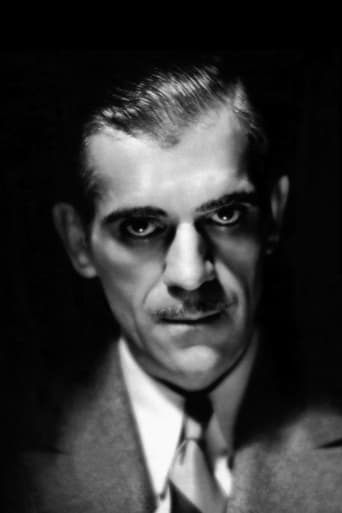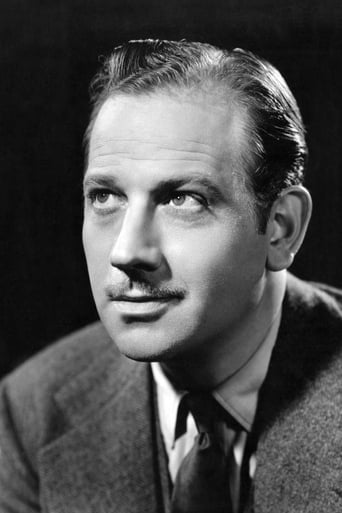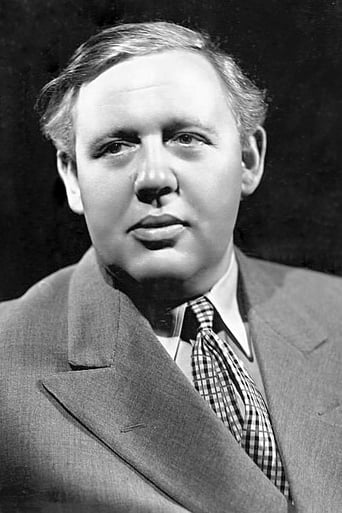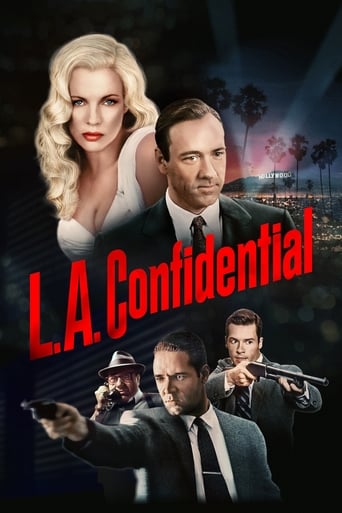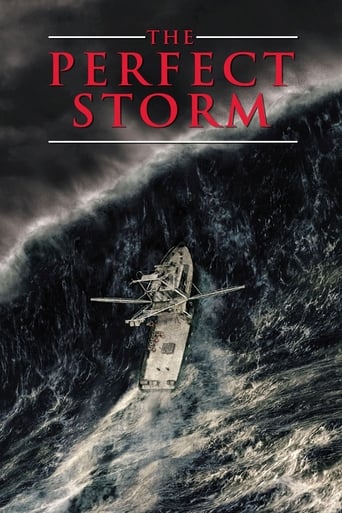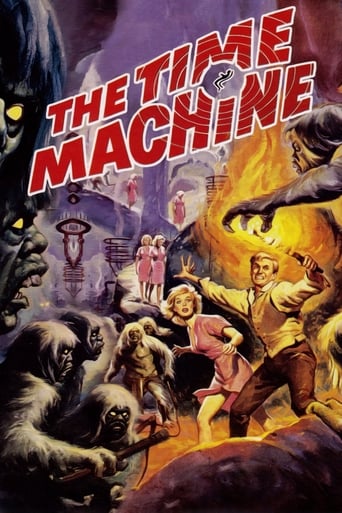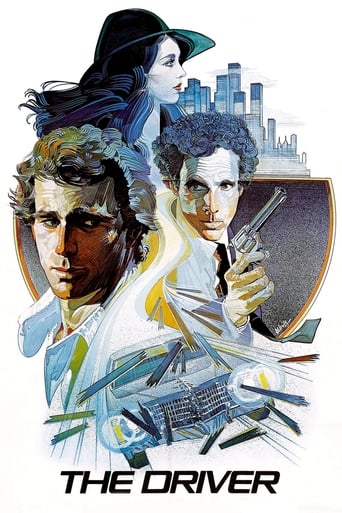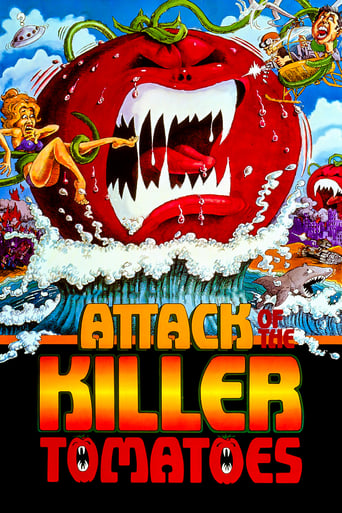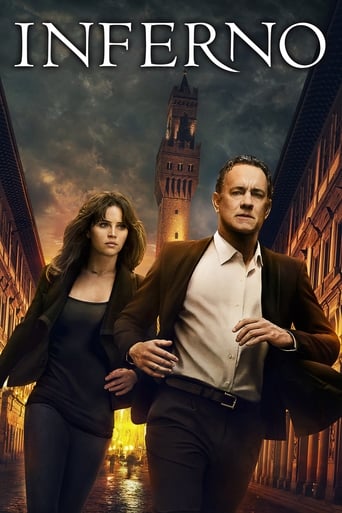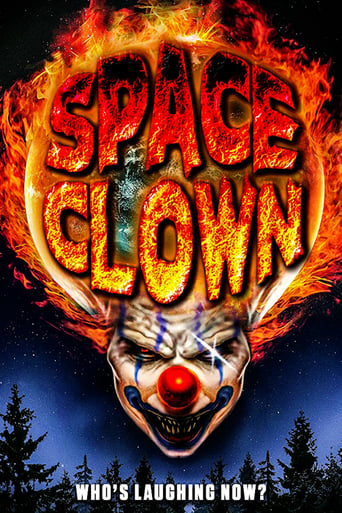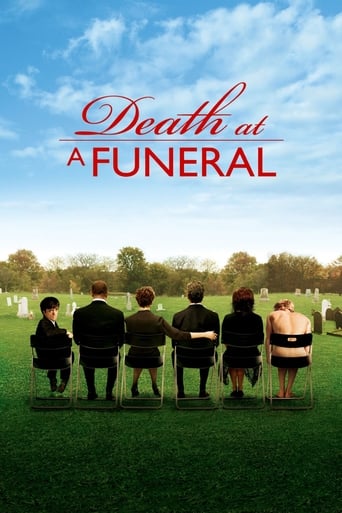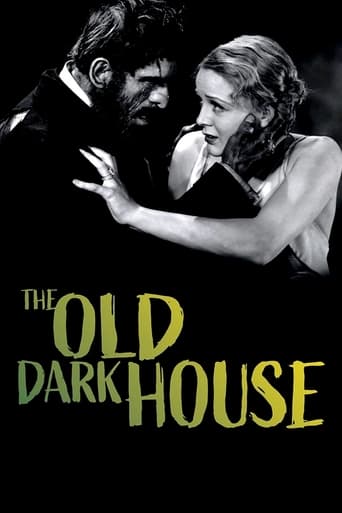
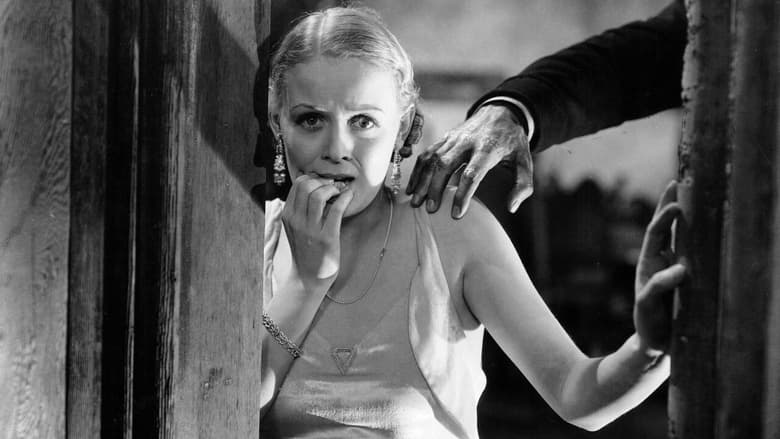
The Old Dark House (1932)
In a remote region of Wales, five travelers beset by a relentless storm find shelter in an old mansion.
Watch Trailer
Cast
Similar titles
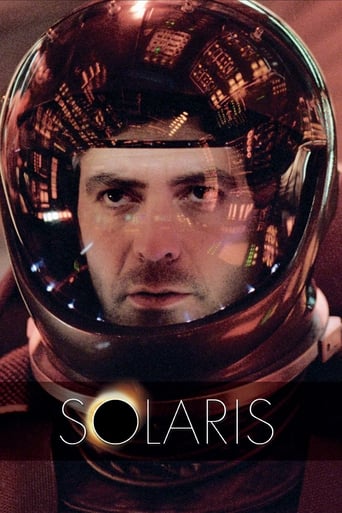
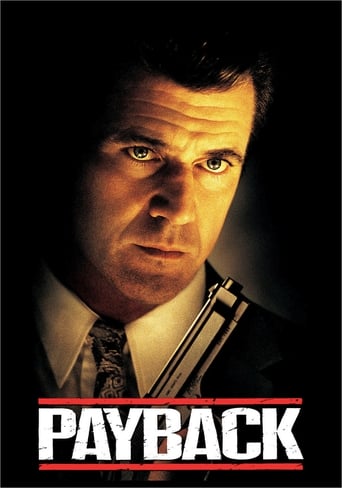
Reviews
Best movie of this year hands down!
You won't be disappointed!
Don't Believe the Hype
All of these films share one commonality, that being a kind of emotional center that humanizes a cast of monsters.
While driving in a stormy night on a lonely road in the countryside, Philip Waverton (Raymond Massey), his wife Margaret (Gloria Stuart), and Roger Penderel (Melvyn Douglas) seek shelter at a creepy old house. Horace (Ernest Thesiger) and his sister Rebecca Femm (Eva Moore) are reluctant but receive the travelers and warn that the butler Morgan (Boris Karloff) is a dangerous man when he drinks. When they have dinner, a man called Sir William Porterhouse (Charles Laughton) arrives in the house with his girlfriend Gladys DuCane (Lilian Bond) seeking shelter. Out of the blue, the light goes out and they split to get candles and lamps, while Roger and Gladys go to the car to get a bottle of whiskey. While they drink and talk together, the drunken Morgan attacks Margaret and Philip along a most unusual and bizarre night. The Pre-Code "The Old Dark House" is a comedy horror film ahead of time in the style of "Haunted Honeymoon", "The Rocky Horror Picture Show" or "Young Frankenstein". There are funny (and also silly) moments and Roger falling in love and proposing the gold-digger Gladys is too naive. But the scenes in the car with the heavy storm are impressive. My vote is seven.Title (Brazil): "A Casa Sinistra" ("The Sinister House")
Light the candles and bring out the blankets-The Old Dark House is a great scary movie on a gloomy evening or afternoon! Five travelers are lost and stranded in a rainstorm, forced to seek refuge in a very creepy looking house. Boris Karloff, in a Frankenstein meets Ape-Man get-up, answers the door, and even though he's enormously frightening, the five walk in the house and place themselves at the mercy of some very creepy people.Husband and wife team Raymond Massey and Gloria Stuart are probably the stupidest of the bunch. Raymond leaves his wife alone to go exploring up the dark, rickety staircase, and when he hears someone crying from behind a door, he tries to open it. Gloria, who has just been made aware that Boris Karloff not only is scary but has incredible strength and is a bit insane, insists on changing her clothes then walks down an empty corridor in a very revealing dress. As you can see, these people aren't very bright. Then again, no one in a horror movie ever is!Charles Laughton and his mistress Lilian Bond show up, but since it's Charles Laughton, she quickly leaves him as soon as she meets Melvyn Douglas. Eva Moore and Ernest Thesiger are the homeowners, and they make every scene as creepy as they possibly can. Don't watch this one by yourself!
The Old Dark House is by far the least known of James Whale's horror films, it was somewhat poorly received upon first release in 1932 and it quickly vanished from all screens large and small and was very much at risk of becoming a "lost film". Fortunately thanks to Curtis Harrington, The Eastman House and the employee's of a certain film vault in New York, that didn't happen.The Old Dark House, as the title would have you believe is something of a spookhouse or haunted house film, but only there aren't any spooks, specters or ghosts at all, just a bunch of old eccentric people; a family known as the Femm's and their disfigured, mentally unbalanced brute of a butler, "Morgan" (played by Karloff). The Old Dark House may not be a true spookhouse film, but it certainly has the visuals and vibe of one. Let me give you a brief run down of what you can expect to see: lost and weary travelers, an unrelenting thunderstorm, an old dark house (now there's a surprise), loud gales, lots of shadow play, diminutive pyro-maniacs, ancient invalids of indeterminate gender, roast beef and potatoes and many a vinegary personality. I find this old obscure film to be extremely intriguing and fascinating for several reasons and it absolutely drips with a certain creepy, storm-battered, wind-whipped, atmosphere - and that is something that all fans of horror should appreciate.A brief run-down of the plot goes as such: Three weary traveler's are lost in a torrential rainstorm out in the wet and rainy wilds of Wales, after nearly getting their car stuck several times and avoiding a landslide by the slimmest of margins, they see lights a head - enter The Old Dark House. As they knock on the front door, a disfigured, though dapperly dressed, mute brute of a man comes to the door and immediately the eccentric characters from within the house begin to appear, first Karloff (Morgan, the butler), then Thesiger (Horace Femm), then some old bent-over, deaf and vinegary lady (Rebecca Femm, Horace's sister) who's not at all happy to have these unexpected visitors in her house. First some gin, then a rather opulent dinner, during which two more visitors appear out of the rain, a boisterous Englishmen and a amateur chorus-girl. But the most eccentric occupants of the house are yet to emerge, Horace Femm is the only one of them who has any degree social grace and is for the most part "normal", because he HATES living in what is a very unwholesome house. The five travelers are up against, the storm, the dark (as the lights eventually do go out, thus it's more like The Old "Dimmly-Lit" House) plus in addition to that, the unfortunate travelers are further menaced by a deranged and drunken Morgan and his old friend Saul; who turns out to be the battiest of them all - they keep this crazy little old man locked-up on the on top floor, otherwise he tends to be something of a homicidal arsonist. But because of the drunken idiot that is Morgan, Saul eventually does get loose and bad things happen. Saul (played by the little known Brember Wills) is one of the great old coots of cinema, he's very short, bearded and balding, with dark shifty eyes, a mischievous crooked smile and a hilariously shrill laugh, a complete eccentric... among other things. Until the rain stops, it's up to the travelers to survive whatever the Old Dark House throws at them, because that's whats really holding them hostage, the rain - and it's a constant presence until the end.The Old Dark House proves to be, very potently, a clinic of quirky characterizations, black humor, witty dialog, shadow play and a definite display of mastery in creating an overall pervasively foreboding atmosphere, throughout the dimly-lit corridors and confines of the unwholesome old dark house. The film is filled out with a great cast of about a 50/50 mix of American and British actors, several of which are true bonafied scene-stealers such as: Thesiger, Douglas, Karloff, Moore and Wills.I simply love the off-beat quirkiness that this film's characters have in immense abundance, that combined with a constantly stormy atmosphere, this all makes for an extremely invigorating experience (you definitely want to watch this movie at night, that's THE time to do so). As usual, James Whale's stylish sense of direction is virtually flawless, as is the films casting; Whale always had a great intuition for picking the right people and this film is no exception. If I had any criticism's for this movie, I gotta say I never did care much for the very last scene, as it contrasts too much with the rest of the movie and I find it a bit awkward and it's an abrupt scene to end things on.One final detail (involving the sound department), one that very frequently colors the soundtrack of this film and adds greatly to it's atmosphere - the wind. If your ears are even remotely attentive to what's going on, you'll quickly deduce that the wind you're hearing isn't real wind at all. Evidently in the early-30's recording wind was still something of a technical issue, that had still yet to be resolved. So instead they used this particularly distinctive "fake wind" sound effect, that's highly characteristic of that era. I don't know how they made it, but it's definitely man-made and I for one absolutely Love how it sounds. It was only used in movies made from around 1928 to about 1935 (the very next year The Invisible Man would also use the very same highly characteristic faux wind effect). The short time-period that this distinctive sound FX was used, several decades ago, certainly seems to make it something of a long-lost, dust-covered, Hollywood relic. I don't know about you, but for me it's a real pleasure to hear that vintage sound effect. Man-Made Faux Wind.
It's one of director James Whale's most offbeat films along with "Bride of Frankenstein" (IMHO his masterpiece). It's based on the J.B. Priestley novel and it was filmed during the Pre-Code Era. I'd say it's a mixture of horror film, spoof and black comedy...in some aspects it's related to "Arsenic and Old Lace", although it has a darker mood.On a very stormy night, a group of travelers find shelter in an eerie and scary welsh manor, inhabited by the "weird" Femm family, and there begins a quick chain of events (the film lasts only 72 minutes) until the film's conclusion. The weary and wet travelers include Raymond Massey and Gloria Stuart as a married couple who are traveling through the country with happy-go-lucky friend Mr. Penderel, played by Melvyn Douglas. Other travelers who arrive to this Huge House, are Charles Laughton, playing a rich businessman of humble origins with his lover, Lillian Bond, who's great and very sexy in her role of a joyous chorus-girl.Then we have the Femms: Religion fanatic Rebecca Femm, who has an obsession with "sinners", expertly played by sinister-looking Eva Moore; her wishy-washy brother Horace Femm, played by the great Ernest Thesiger, who impersonated "Dr. Pretorius" in "Bride of Frankenstein"; 102 years old Sir Roderick Femm, who is played by actress Elspeth Dudgeon, who's listed in the cast as "John" Dudgeon (creepy character!) and "seemingly harmless" psychopath and pyromaniac Saul Femm, played by Brember Wills.Boris Karloff deserves to be mentioned apart, who impersonates the scarred butler, Morgan, who lusts after Mrs. Waverton (Gloria Stuart), perhaps because she gets to wear a sexy 1930s low-cut dress, the type which pre-Code Jean Harlow wore.Whale's direction is excellent. I was especially impressed with the shot of the front of the spooky old house in which the Femms reside as seen from the eyes of the passengers in the car. Whale liked to use a subjective camera, which was unusual for many early thirties movies. The camera is the viewer as that viewer moves through the scenes.Best of all was the late Gloria Stuart's commentary on the Kino DVD, which was excellent. She is such a pleasure to listen to as she reminisces about the movie, and talks all about everyone involved. I never would've known anything about the brilliant actress Eva Moore if it wasn't for her great commentary. She provides so much insight, and is so funny and charming at the same time. She also talks about other things, and other aspects of her career. It's almost like having a conversation with her, she's that relaxed. She speaks very highly of James Whale, and says that he's the best director she ever worked with. She points out different aspects of his filming, especially his use of shadows. She says that making this movie was the high point of her career, and that she never made another movie that she enjoyed working on as much as this one. Take that James Cameron!Highly recommended.
